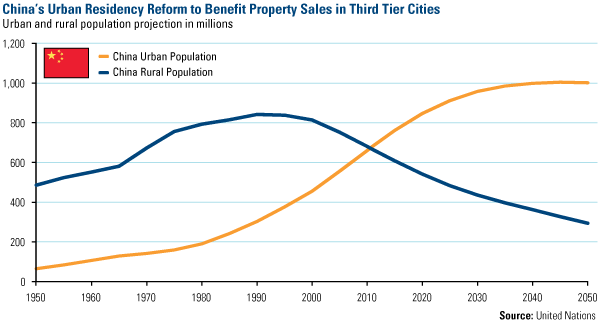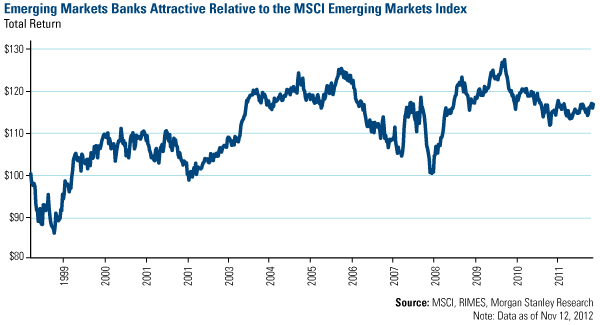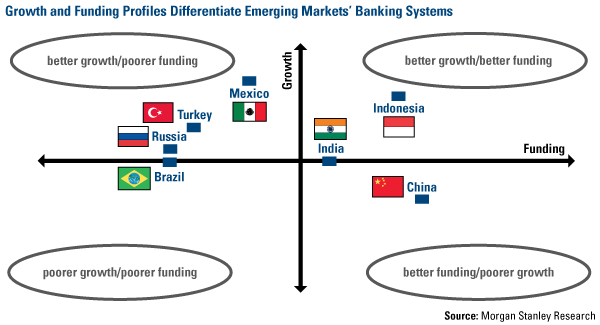Emerging Markets Radar (November 26, 2012)
Strengths
- HSBC November China flash PMI moved to 50.4, crossing above 50 into expansionary territory for the first time in the last 13 months and proving that China GDP growth is moving out of the trough this year. The flash PMI is supported by stronger production output and export orders. The figure suggests that further acceleration should be expected in the November official statistics when they are published in mid-December.
- Mainland brokers should benefit from lower capital requirements for risk capital reserves endorsed by the China Securities Regulatory Commission (CSRC), Shanghai Securities News reported.
- In China, passenger vehicle sales in the first two weeks of November were rising seven percent on a year-over-year basis. Chinese local brands grew 26 percent.
- Thailand third quarter GDP grew 3 percent, in line with the market consensus, but lower than the revised 4.4 percent in the second quarter. Private consumption went up 6 percent in the period, better than the 5.3 percent the previous quarter, though exports still slowed to 2.8 percent as expected external weakness slowed trade activities.
- Malaysia’s October CPI was 1.3 percent, holding at a two-year low and in line with consensus.
- According to Morgan Stanley, dedicated emerging market funds reported investment inflows of $1.1 billion for the week ended November 21, 2012. This is the eleventh consecutive week of inflows to emerging market funds. At the country level, Colombia, China and Philippines reported the largest inflows relative to assets under management in absolute terms.
Weaknesses
- China Foreign Direct Investment (FDI) fell 0.2 percent in October to $8.31 billion, a slowing trend after China was showing industrial overcapacity and a decreasing rate of return on invested capital in the manufacturing sector last year.
- Taiwan reported third quarter GDP up 0.98 percent, versus the consensus 1 percent, but industrial production was up 4.56 percent, better than the estimate of 2.6 percent.
- Hong Kong’s inflation was unchanged in October staying at 3.8 percent year-over-year, but higher than the consensus of 3.6 percent. The market is not concerned.
- Gazprombank, Russia’s third-largest lender, dropped plans to build an investment bank in London after the Financial Services Authority (FSA) sought details about its shareholders. Russian investment banking is dominated by state lenders Sberbank and VTB; both have investment-banking operations in London.
Opportunities

- The graph above shows the urbanization trend in China. The trend should continue with the new leadership emphasizing reform policies that will facilitate the urbanizing rural population that now works in the cities. Some officials have suggested a policy to give immigrants urban status (called Hukou) faster so that they can benefit from social supports which are normally available to urban residents. Urbanization has always been a big driver for the housing market since people need to buy a house for their family.
- Poland will invest 100 billion zloty in the energy sector for the next 20 years, said Prime Minister Tusk. Upon completion of a new unit, the Kizienice power plant is going to be the largest coal-fired power plant in Europe.
- Banking stocks have underperformed during the recent economic deceleration in emerging markets. However, over the longer time horizons, they have outperformed. A Morgan Stanley global emerging market strategist argues that financial stocks can be long-run outperformers, with a more benign macro backdrop, solid balance sheets, simple business models, tight regulation, demographic change, and healthy credit demand.

- Among the seven largest global emerging market banking systems, Indonesia, Mexico, and Turkey have the most attractive potential for loan market development, while China, India, and Indonesia have the most comfortable deposit funding profiles, allowing at least a few years of self-funded growth.

Threats
- After the HSCI Index is back to its yearly high, share placements may start by companies that are raising capital for expansions or reduction of debts. These ownership dilution events usually cause share price volatility in the short term. Investors should focus on the use of such proceeds and the fundamentals of businesses.
- Macau’s visitor arrivals were down 1.2 percent year-over-year in October, though arrivals were up 8.6 percent on a month-over-month basis. Macau casino revenue growth still is expected to show mid-double-digit growth, but should be much lower than a couple of years ago when it was growing in the mid 30 percent range. As such, investors should focus on cash flow of the business which is one of the most profitable and stable businesses in the greater China region.










